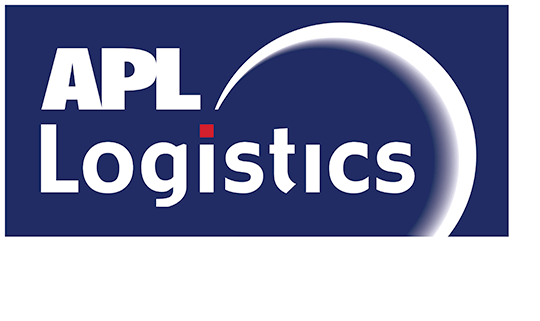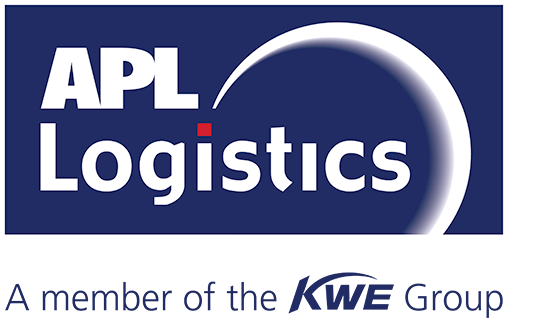October 4, 2021 in PODCASTS
Keeping Control In A Turbulent Year – Customer Experience
In our quest of advancing business with a customer-first approach, every relationship matters. Businesses understand that to be successful, they need to take a hyper-personalized approach.
In this episode of The APLL Pulse Podcast, Christine and Julien discuss how drawing on synergies of a global team and prioritizing innovation and sustainability helps deliver purposeful customer experiences. A condensed version of the conversation follows.
April Chapman (Host): Hello, everyone. I’m excited to introduce my guest today as we welcome some voices from Asia. Our first guest, Christine Qiu, the Global Service Quality Director, works out of our Shanghai office. Fuelling change behind the scenes, Christine is the leader redefining the custom customer experiences with APL Logistics. Welcome to the show, Christine. Our second guest is Julien Behuret, the Regional Sales Director at APL Logistic Singapore. Since joining us, Julien’s been driving many strategies that help our clients increase global revenue, market share, and profitability. Welcome to the show, Julien.
Christine Qiu: Thank you, April.
Julien Behuret: Thank you. Great to be here today.
April Chapman: So, let’s dive into our topic today. I am focusing on a customer centric future. Christine, it pretty much goes without saying that this has been an unpredictable year in the supply chain industry. So, having been in this company for quite a while, Christine, can you describe some of the fundamental shifts that you’ve seen in the supply chain?
Christine Qiu: Globally, the raw materials are running short. The vessel may emit the schedule whenever there is a port crisis. We are also seeing longer unloading time, a lack of laborers and truckers everywhere. Getting the carrier space equipment is an uphill task for many of our customers.
We discovered the need to move towards a culture of innovation, provide greater end-to-end visibility for our customers, make better shipment planning, respond rapidly to unforeseen situations, or make data-driven decisions.
Every bit of our work now evolves around providing information to our customers in the fastest and easiest way. Internally, we are seeing colleagues all over the world stepping in with great suggestions. It’s inspiring to know we are not doing this alone.
A Hyper-Personalized Approach
April Chapman: No, we’re not alone. I think the whole industry is adapting. So, Julien, because I know when it comes to our customers, how do you keep your team on the same page to be customer-centric, empathetic, or personalized?
Julien Behuret: We stay very close to our customers and prospects. I regularly call the customers and prospects about twice or thrice a week to build relationships and keep them updated on our solutions. This is very important because we offer hyper-personalized logistic solutions to these customers.
I often involve the customers or prospects to gain a deeper understanding of the business needs. I use the example of a large, US-based company with a 6-billion-dollar valuation. We customized an Order Management solution and released the solution gradually in phases, factoring in the ongoing disruptions, port congestions, and factory closures.
On top of that, we delivered information beyond the logistics fields such as market intelligence, trends, and the Covid-19 situations. We work as a team, and I often involve subject matter experts like Christine in the discussions with the prospects, bring the extra pair of eyes over the situation, and add more value and credibility to the conversation.
For another 4.5 billion retail company, we conduct monthly business calls with the team involving the company’s Regional Management Director.
The agenda is clear. We update everyone about the ocean freight rates, operations, and COVID-19 situations. Through these calls, the company prioritized and hit the market with the right POs and delayed the non-priority shipments.
April Chapman: That’s one of the things I like about our company. Everyone seems accessible. It kind of reminds me of the Olympics, the relays. You’re passing the baton to make sure the team gets to the goal, whatever works best for the customer. Christine, what are some of the significant steps you have taken to pivot in this evolving landscape?
THE VALUE OF MULTI-DISCIPLINARY TEAMWORK
Christine Qiu: I believe some of the best ideas come from looking across a broad spectrum. So, I lead a global service quality team of more than 60 service excellence experts with different backgrounds, and expertise. We often communicate within the vast internal teams, with the operations, product team, the key account managers, and even sales, to understand the underlying pain points.
Having said that, we are able to run a series of enhancement programs to improve the customer experience.
We introduced an Operation Lifecycle Matrix program that comes with a visual intelligence dashboard to provide more visibility. With the lockdowns happening somewhere in the world at any given time, this matrix provides an easy point of reference.
External clients and the internal team can gain quick insights into the current events impacting the supply chain through the dashboard on our corporate website.
MAKING SUSTAINABILITY A PRIORITY
April Chapman: Do you think that sustainability is factoring into what we’re doing to remain customer-centric?
Christine Qiu: Yes, we are factoring sustainability. In fact, we have implemented the Electronic Forwarder’s Cargo Receipt (FCR) since June 2020 and removed the need for our staff, customers, or shippers to be physically present in handling documents. Through the electronic FCR, users can access the document online. It’s eco-friendly, time-saving and it helps to keep our employees and partners safe during the pandemic.
Today we are pleased to share our clients in 35 countries across Asia, Africa, the Middle East, Europe, North America, and Latin America are using the electronic FCR with image and certified digital signatures.
Besides, we are scaling the customers’ digital journey by moving other shipping documents online. We are launching a project called “Document Management Service Class” in phases this year.
April Chapman: It’s essential to pivot as this landscape evolves because oftentimes customer expectations are going up, and if we don’t adapt to meet the changing demands, we’re going to struggle, and our customers are going to struggle. So back to you, Julien. What do you think are the things impacting the supply chain leaders?
Julien Behuret: I personally don’t think that the pandemic has created new supply chain challenges. It fundamentally revealed the unseen vulnerabilities in the supply chain, and organizations are suffering from shortages, or a loss of sales as a result.
In addressing these unseen forces, I believe there are three main factors critical to success.
1. MORE VISIBILITY, MORE CONTROL
Recent Gartner or McKinsey studies are prioritizing technology. We need to think about how we can integrate different networks together, not only between 3PLs and the customers, but across all actors in the supply chain. As an example of this, we are building an ecosystem for a US-based, footwear company with a $100 million-dollar valuation. We involved all actors, including the vendors in Asia, the customs brokers in the US, and incorporated their platform with our system.
2. MORE BALANCE BETWEEN EFFICIENCY AND RESILIENCE
There is a need to strike a good balance between efficiency and resilience. The current global disruption demonstrates the limitation of the lean logistics model. Generally, retailers kept low inventory to be functionally efficient. However, low inventory is also causing a lot of strain at the destination, coupled with the loss of sales. On the other hand, building resilience comes at an additional cost, and that’s not easy to accept.
Before the pandemic, we started helping a large sports company implement a complete PO management solution. It was an investment for them because they had to pay more. On the whole, they started to reap the benefits and see real value in the solution, especially with the pandemic. Now they can prioritize the critical orders and only pay premium freight for the right orders to go to the right locations.
3. MORE COLLABORATION
Julien Behuret: Collaboration helps to address the problems with working in siloes. Today, the Vice President or CXO-executives are actively involved in the early stages of the business discussion. On top of that, we provide advice through a global team such as the technology, engineers, sales, and operations with different perspectives and skill sets that help uncover the blind spots.
In my experience, more customers are factoring in sustainability and rethinking how to be carbon neutral through the different transportation modes. We recently received an important sustainability award, which positions us very well in our sustainability discussions with the customers.
April Chapman: I agree with you. I think sustainability remains a priority because it is crucial. The next generation will be interested in knowing what a company is doing when it comes to that. I remember we created a sustainability website for customers to plug in and check on the carbon emissions, which is cool. Christine, let’s get you involved here. What do you think is coming?
Christine Qiu: As Julien mentioned, the need for visibility, control, balance, and collaboration is becoming more crucial than ever. We are approaching these requirements with the launch of a vital service called Carrier Booking and Space Management towards the end of the year. These services will help our customers gather visibility over the latest carrier booking space and equipment status and receive exceptional case notifications to make better decisions. We have other automation functionalities planned down the pipeline, so stay tuned. There are exciting launches we are working on to fuel better customers centricity.
April Chapman: Well, I think this is an interesting discussion. Thank you so much, Julien and Christine, for joining me today.
Christine Qiu: Thank you, April.
Julien Behuret: Thank you.


